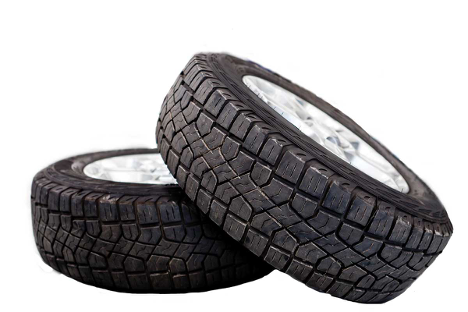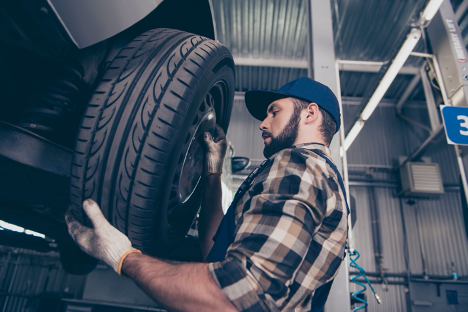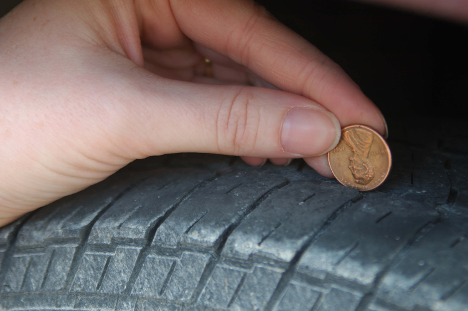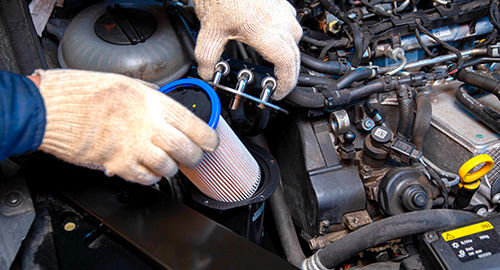For many years, the only way to determine if tires needed to be replaced was the use the ‘penny test’, which involves sticking a penny (or a quarter) into the tread of a tire. If you can see the head of the person on the penny, your tires are too worn and the treads are too shallow, meaning that the tread depth is less than 2/32 of an inch and it’s time to replace your tires. If the top of the head on the penny is covered, it means that the treads in your tire are deep enough to continue using the tire and that you’ll have some time before you need to replace them. While this is a good way to tell if your tires are too worn to continue using, that’s not the only reason you might need to swap out your old tires for a brand-new set.
How Long Do Tires Last?
As a general rule of thumb, the tires on a vehicle you drive fairly often will likely last you about 3 to 5 years or approximately 75 000 – 100 000 km. The shelf life of a tire will majorly depend on how often the car is driven. The less often a vehicle is driven, the longer its tires will last. All tires expire eventually, which is why our Service Departments recommend replacing all tires once they get too old (even if they haven’t already been replaced, aren’t fully worn down, the tire is a spare, or the tires are in storage), if they haven’t already been replaced for another reason. This is because as the tire gets older, the rubber starts to crack and cause parts of the tire to separate from each other.

With that being said, there’s no exact way to tell how long a tire is going to last since it almost completely depends on environmental and other external factors. This can include climate, driving habits, road conditions, and tire maintenance. For example, if you drive in extreme temperatures, speed on damaged roads, and neglect tire maintenance, your tires likely won’t last as long as the average tire would.

Tire Maintenance
The maintenance schedule for vehicles varies depending on the car’s age, make, and model. For a complete rundown of your vehicle’s specific maintenance schedule, check your owner’s manual or the OEM’s website. However, as a general rule of thumb:
- Tire Rotation: Should be done every six months or 10 000 – 12 000 km, whichever comes first
- Tire Alignment: There is no specific requirements for this. It should be done as recommended by your Trained Technician, but they should be aligned when they are first installed.
- Tire Balancing: We recommend getting this done every 5 000 – 10 000 km, or sooner if you’re experiencing symptoms of tire imbalance (including: vibration of the steering wheel, floorboard, or seat, and uneven wear patterns on your tires)
Village Nissan has a massive selection of tires for our customers to choose from, and stock tons of brands including BF Goodrich, Bridgestone, Continental, Dunlop, Firestone, General Tire, Gislaved, Goodyear, Hankook, Kelly Tires, Michelin, Toyo Tires, Uniroyal and Yokohama Tires. Our tire store allows you to search for tires based on your vehicle’s make and model.






